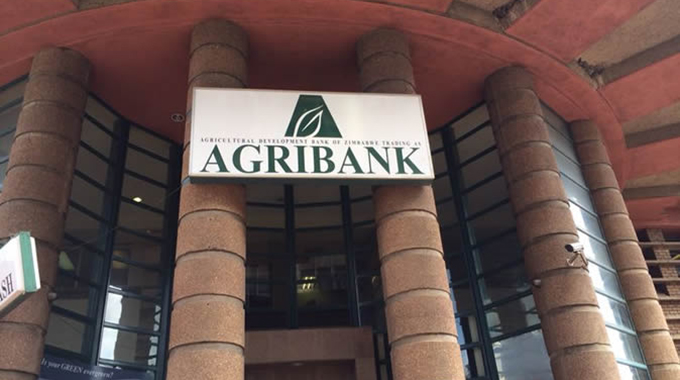Ministers killing parastatals: Agribank

Africa Moyo Senior Business Reporter
AGRIBANK chief executive officer Mr Sam Malaba says undue interference by ministers is largely responsible for the under-performance of State Entities and Parastatals (SEPs).
Mr Malaba said ministers appoint incompetent people as board of directors and when a new minister takes over the ministry usually after five years, a fresh board of equally “unschooled” members is also appointed. Further, Mr Malaba believes adequate capitalisation of SEPs, and recruitment of qualified employees, are also key ingredients to turning around the operations of parastatals.
He said this last week while presenting on parastatal turnaround during the Public Sector Audit and Financial Management Conference. President Mnangagwa was guest of honour at the function.
Mr Malaba said; “One of the biggest challenges that parastatals face in Zimbabwe is abuse by ministers who at times may appoint people who are not qualified as board members to State-owned companies. It is expected that the (Public Entities) Corporate Governance Act will deal with some of these deficiencies.
“This situation is exacerbated by the fact that when the minister leaves the ministry, the board is fired and new board members are appointed.”
Mr Malaba explained that it was critical for parastatals to have an effective board of directors, which provides oversight.
Ordinarily, an effective board should protect the institution from political interference by the shareholder’s representatives.
He said Agribank has not yet encountered political interference in the discharge of its duties.
Mr Malaba called for strengthening of the internal audit function within parastatals and given the independence to operate effectively.
As part of efforts to ensure parastatals work effectively, President Mnangagwa has placed limits on the terms of office of CEOs and board members of SEPs, while also binding them to performance contracts. Appointments of board members will also be done on merit, and they can be sacked if they fail to craft bankable turnaround strategies, or fail to comply with them.
At the same time, permanent secretaries are now barred from sitting on boards of SEPs while remuneration, which has previously been blamed for ruining parastatals, has been capped for appointees.
The provisions and other requirements are contained in the Public Entities Corporate Governance Act that was gazetted in May. Risk and Compliance departments are also key in adopting good corporate governance for parastatals.
Mr Malaba said Agribank has been “fortunate” that there has been stability regards board appointments, resulting in its ability to “function without political interference”.
It is now hoped that the enactment of the Public Entities Corporate Governance Act will ensure operational independence for SEPs for their efficiency.
Mr Malaba said it was also critical for parastatals to “recruit and retain” competent and skilled manpower. He said Agribank has employed, and retained “highly qualified and experienced” personnel across all the critical functions, resulting in the bank’s transformation.
Agribank has returned to profitability after cobbling a turnaround strategy anchored on capitalisation and retrenchments to contain staff costs.
Government, which owns Agribank 100 percent, has so far capitalised the bank to the tune of $49 million since 2014. A further $5 million is expected to be channelled into Agribank this year.
This has seen profitability rising from $4,8 million in 2016 to $7,9 million last year. The bank expects to surpass the $10,1 million profit target this year. Agribank has since been able to tame its non-performing loans (NPLs) after the Zimbabwe Asset Management Company (Zamco) acquired $17 million of its NPLs.
This allowed the bank an opportunity to re-engineer its lending procedures in a view to minimize NPLs. All new loans have performed well and as at December 2017, the NPL ratio was 14 percent down from 40 percent in December 2014.
Currently, the NPL ratio is at 9 percent, with a target of 7 percent by year end.
Government decision to allow Agribank to secure a strategic partner is critical to positioning the bank as an important player in the Agriculture sector.
Mr Malaba said preference is for strategic partners with deep pockets and also a bias towards agriculture, with access to long-term lines of credit.
“As such, we are in pursuit of a strategic partner who will bring in the much-needed capital, liquidity and access to international lines of credit.
“This will enable the bank to offer more diversified products and achieve its core mandate,” said Mr Malaba.
During last week’s Public Sector Audit and Financial Management Awards, Agribank emerged the overall best financial management of the year award in parastatals, for the third year in a row.









Comments